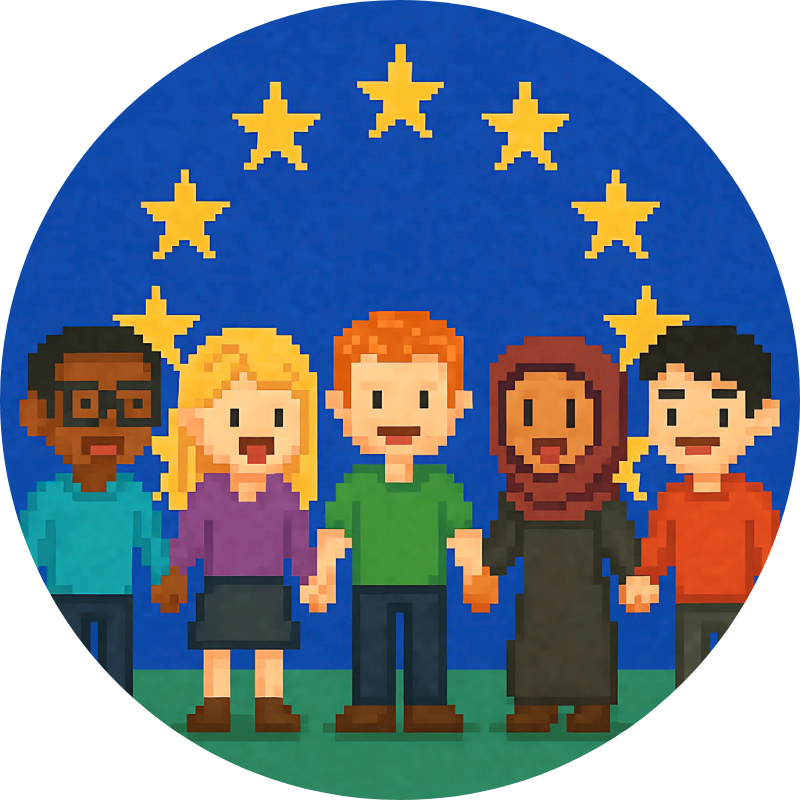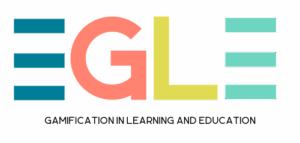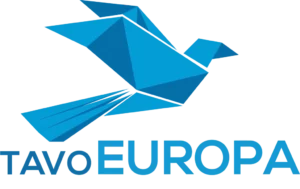
Our primary goal is to enhance youth engagement in democratic processes, foster a deeper understanding of EU values and policies and promote active citizenship in youth by developing digital skills, critical thinking and media literacy through educational video games.
Context and needs
The youth population in the EU is one of the most important actors of our future. Those are people that need to be accompanied and formed to achieve great progress, as the future workforce and thinkers of the EU community. They also have a valuable impact in fields such as entrepreneurship, environment, gender-based disparities, and more, that are key points of our current society.
Common values and citizenship within the EU are essential to understanding the operating process of the EU and how we can work to become a great contributor to it. Those same values are also essential pillars of a stable society.
This project seeks to develop a new understanding of democratic processes by youth publics through innovative methods designed to help them raise their interest in the process. Video games were chosen as they are more modern and an attractive approach for youth learners. While also being in accordance with the new digital era.
10 content fiches on democracy and the EU as a theoretical basis to fully understand relevant concepts and topics

1 tech guide for creating non-coding video games for youth and youth workers of any skill level to harness various engines, tools and terminology

1 content guide for integrating educational content into games to ensure efficient implementation of EU citizenship topics in game-based activities

1 report of the internal training session on video game creation to replicate the project’s workshop on how to efficiently create educational non-coding video games

10 short video games as prototypes on a variety of topics and engines, to use directly or find inspiration in

1 toolbox containing 15 resources for game creation to build, develop and boost inspiration and motivation

10 pre-designed templates for game content to fill out, replicate and adapt to various contexts and needs

20 video games created by youth during the testing phase to show how efficient the other resources are in helping youth and youth workers create their own educational video games

10 tutorials for educational game creation to harness non-coding engines, resources and tools
AHE w Lodzi
(Łódź, Poland)

EGLE
(Mons, Belgium)

Euphoria Net
(Rome, Italy)

Tavo Europa
(Vilnius, Lithuania)

Sempre a Frente
(Lublin, Poland)


